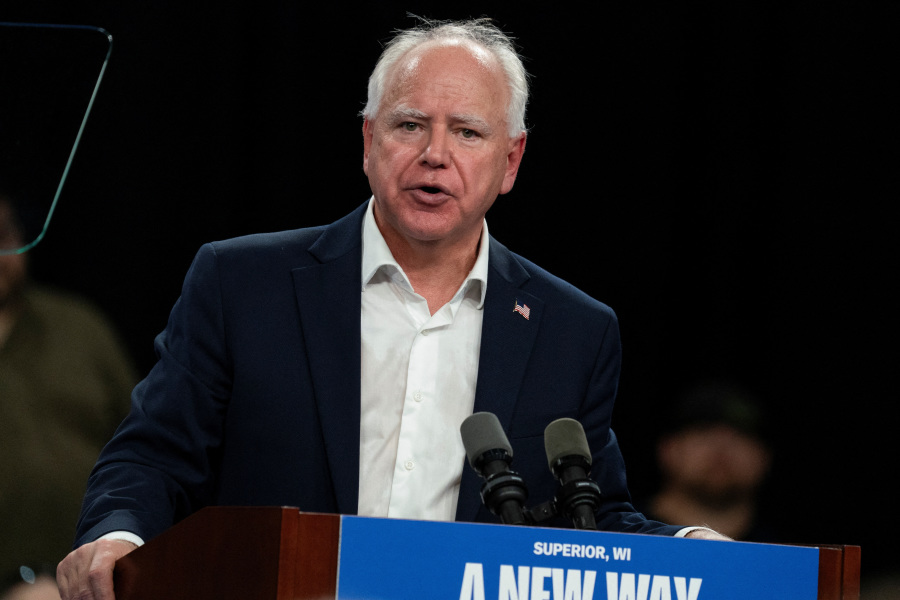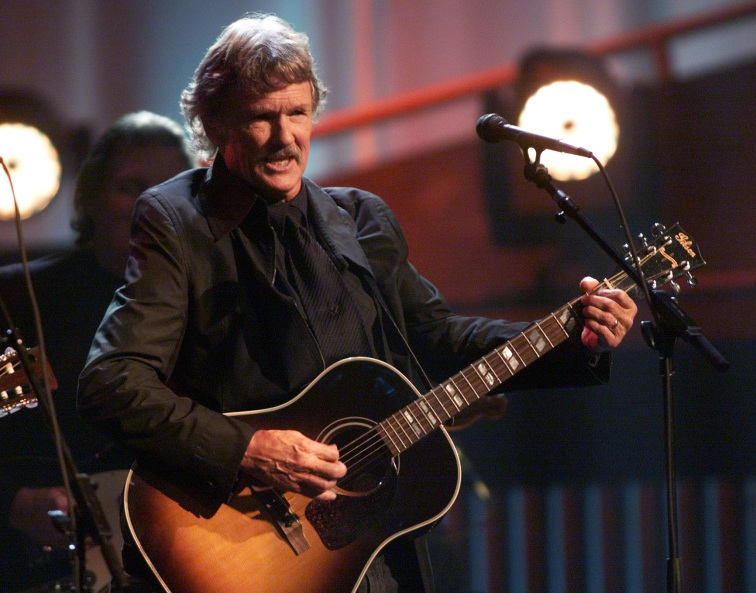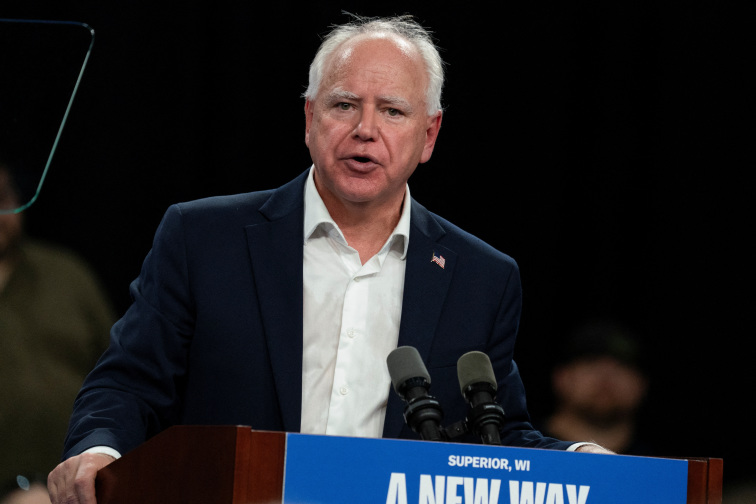Democratic vice presidential nominee, Minnesota Governor Tim Walz, delivers remarks at an election campaign event in Superior, Wisconsin, U.S. September 14, 2024. (REUTERS/Erica Dischino/File Photo)
WASHINGTON (Reuters) -Tim Walz, the Democrats' vice presidential candidate, was not in Hong Kong or Asia during the 1989 Tiananmen Square crackdown as he has said, he confirmed on Tuesday night after Minnesota public radio unearthed a photograph and a newspaper report from that time that contradicted his claims.
"I'm a knucklehead at times," Walz said, when asked about the reports during his televised debate with Republican JD Vance. "I got there that summer and misspoke," he said.
Walz, who frequently traveled to China as a teacher in the 1990s, leading trips of U.S. high school students, had said while a member of Congress that he was nearby during the demonstrations in Tiananmen, which started in April of 1989 with protests and ended in June with a bloody government crackdown that was estimated to have killed hundreds or more.
"The courage of Chinese reformers during this monumental and heartbreaking day has been a beacon for the democratic spirit throughout the world," he said in a 2014 statement on the Tiananmen anniversary. "Living in Asia at the time, I was profoundly affected by these events and the Chinese people's struggle for reform."
During a Congressional hearing in 2014, Walz said he was in Hong Kong at the time, saying: "As the events were unfolding, several of us went in (to Tiananmen)."
MPR News, Minnesota's public radio station, reported on Sept. 30 that a photograph published May 16, 1989, showed Walz working in the National Guard Armory in Alliance. "And a story published in another Nebraska paper on Aug. 11 that year said he would 'leave Sunday en route to China,'" the station reported.
Walz has been criticized by Republicans for referring to "weapons of war, that I carried in war," in his 2018 gubernatorial campaign, although he was not deployed to a war zone in his 24 years in the National Guard.
He has referred to himself as a retired command sergeant major, one of the highest non-commissioned officer positions in the Army. While he achieved that rank, he did not meet the requirements to retire with that title.
(Reporting by Heather Timmons; Editing by Daniel Wallis)








News magazine bootstrap themes!
I like this themes, fast loading and look profesional
Thank you Carlos!
You're welcome!
Please support me with give positive rating!
Yes Sure!